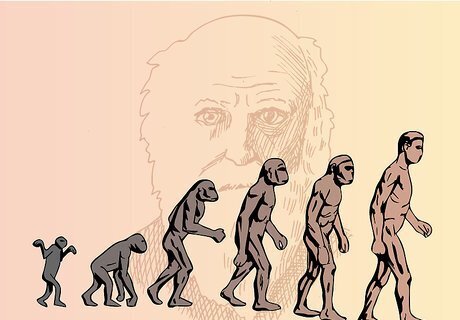
views
This matches with the consensus of biological scientists and with the general scientific method. ID is a non-scientific idea. Many religious people have been attracted to ID because they acknowledge the power of science and wish to justify their deepest hopes in terms of the dominant paradigm. We should respect the feelings of the scientifically unsophisticated, but we do not have to admit irrational and untestable ideas as valid evidence in a debate.
Scientifically literate people should support the efforts of everyone who is trying to educate themselves about science. True, many people search out -- and bend -- facts that support their pre-conceived notions. Those who respect rational thought need more than well-supported factual responses at the ready. They also need a deep understanding of how science works. Even non-professional fans of science can learn to represent the scientific process more accurately and in terms any honest person can understand. This article explains how.
Remember, the whole point of science is to improve our understanding of how the observable universe really works. There are no real losers when science is done properly.

Be very well-read. Stop by your local bookstore or library and pick up some issues of Natural History Magazine, Scientific American, Smithsonian, Skeptical Inquirer etc. or scholarly journals such as Cell and Nature (if you can understand what you read). Also be sure to read scholarly works written by scientists who are Christian adhering to creation theory. Books can also be useful, but current publications are more important in this case. Keeping abreast of current research and discoveries will put you ahead of the game and will help you catch disproved facts and obsolete studies.

Remember that evolution is a theory in the scientific sense, just as relativity is a theory, and that both have their strengths and weaknesses scientifically. At the same time, the words 'evolution' and 'gravity' describe things that can be observed, as well as the theories which are our best attempts to explain the observations. Both are open to improved theories but these improved theories should fit all the facts better than the current theories.

Continue to ask questions to guide the discussion into a field in which you possess a useful amount of timely knowledge. Remember that 90% of good debating is simply keeping a tight rein on the topic at hand. Don't let the other person lead you into unfamiliar territory! If the other person has talked about another topic and diverged from the main topic for a considerable amount of time, you should just wait for him to finish, without paying heed to his arguments, and proceed to elucidate how his statements had nothing to do with the topic at hand. Proceed to calmly steer the conversation back to the main topic.

Keep a moderately open mind, while acknowledging that neither of you has to change your beliefs. You're just discussing not proselytizing-- but at the same time you may learn something interesting that you didn't know before. If at any point you feel that the debate is getting a bit agressive, take a short pause and lighten the mood with a joke or a statement.

Allow the other person to fully explain his point of view before wading in. This helps keep the discussion civil and allows you to gain a better perspective on where he is coming from. When his arguments have been laid out, proceed to meticulously disassemble them one-by-one. If you are unable to refute any of the points that the other person is making, explain your own point in detail and ask for the inconsistency in your logic.

Present one argument at a time; don't execute a "mind-dump" and try to drown the other person in facts. This will make it all too easy for him to only refute a small portion of your arguments and later claim to have "beaten" you. Make sure he acknowledges and answers each of your individual points before moving on. Taking the argument one step at a time ensures that the argument does not turn toxic, and remains constructive for both the parties involved.

Be on the lookout for intellectual-sounding claims that are nothing more than vague statements based entirely on personal opinion. Constructive discussions with people making such claims can be tricky. Ensure that you remain calm and collected throughout the process, and only answer in facts. Do not pay heed to the claims being made, and ask for authoritative sources to support their claims. Check the Warnings section for several common ones.

Watch for more scientific-sounding points that are nonetheless fallacious after analysis. These can be harder to catch as they are often phrased carefully to avoid sounding directly theistic and the exact presentation mutates constantly. Some common pseudo-scientific phrases are listed in the Warnings section.

Question citations of papers that allegedly support creationist positions. Very often, papers cited by Creationists do not prove the point that they are alleged to make. The original papers are often available online and it's usually very easy to verify whether they actually make the claims they are supposed to make. There are a handful of papers that are frequently misrepresented by Creationists, again and again; a continually changing set that cycle in and out of popularity. They seem to be propagated via e-mail and websites so the same papers keep turning up again and again. Be prepared to rebut these citations by being able to make strong assertions about what these papers actually say.

Afterwards debrief yourself and talk the discussion over with friends. Like any talent, rational debate is developed by post-game analysis of your strengths and weaknesses. What topic could you be more informed about? What religious scholar could you analyze? What arguments did the other person make that you didn't know about? Incorporate all this new information into your strategy for next time.


















Comments
0 comment